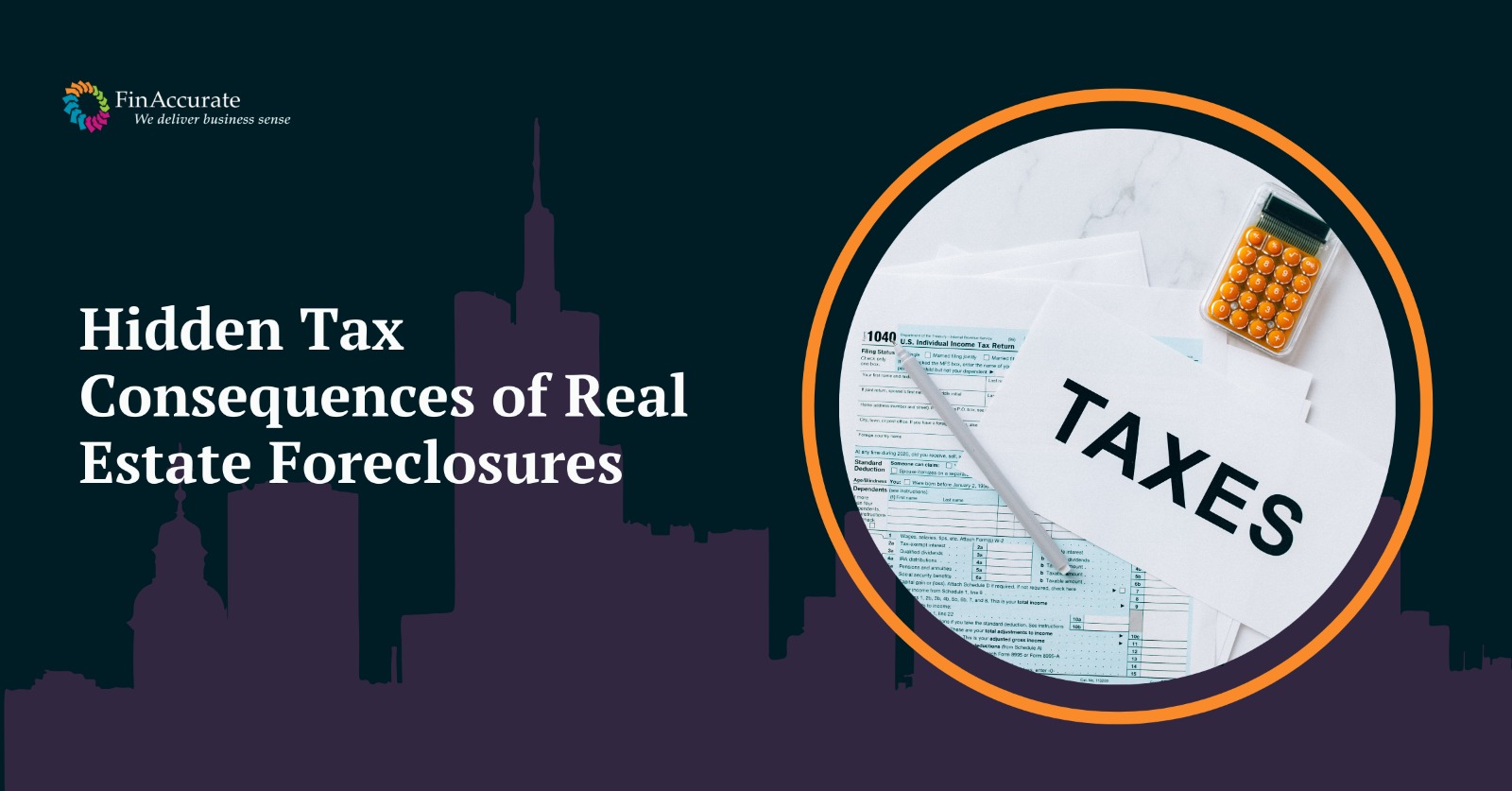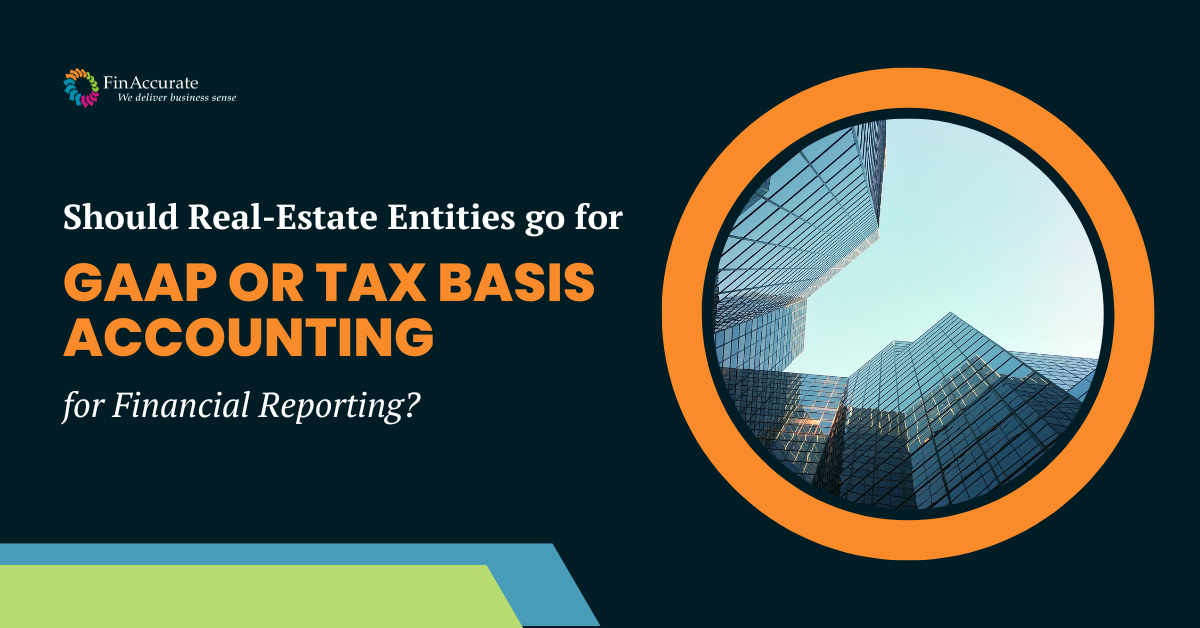In our interesting blog, you can learn about the secret tax problems that come with foreclosures. Find out how Deed in Lieu of Foreclosure, Recourse Debt Foreclosure, and Nonrecourse Debt Foreclosure work. Learn how to handle this tricky area with confidence and protect your financial well-being. Since the end of the financial crisis in 2008, the real estate business has done well, and prices have gone up. Because the market is doing well, we haven’t seen as many house foreclosures as we used to. In this piece, we talk about the tax effects of “deeds in lieu of foreclosure” and actual property foreclosures.
Deed in Lieu of Foreclosure
A deed in lieu of foreclosure is an agreement between the borrower and the lender. It is a way to keep the sale from going on record. In a foreclosure, on the other hand, the lender takes back the property after the user has not paid for a while. Both end up with the same tax bill.
Foreclosures on real estate can have different tax effects, mostly based on what kind of debt is involved (recourse vs. nonrecourse). The borrower is directly responsible for a recourse debt, and the lender can go after the borrower even after the property has been taken away. The only thing that backs up a nonrecourse loan is the real estate, so the borrower is not personally answerable.
Tax Consequences of Recourse Debt Foreclosures
When a lender takes over a property to pay off a recourse debt, It is treated as a sale with profits equal to the smaller of the property’s fair market value (“FMV”) when the default happened or how much the secured debt was. If the secured debt is more than the FMV, the amount that is forgiven is counted as cancellation of debt. cancellation of debt (“COD”) income.

These rules often lead to a two-part deal, where it is possible to have both (1) a gain or loss from the supposed sale of the property because its FMV is more or less than its basis and (2) COD income because the secured debt is more than the property’s FMV.
COD income will only happen in default if the lender pays off some or all of the shortfall when they take the property. If the lender chooses to pursue the borrower to recover the difference (gap) between the outstanding debt and the actual amount collected, the cancellation of debt (COD) income will not be recognized until the shortfall is fully repaid or settled for an amount less than the original debt.
Section 108 of the Internal Revenue Code (IRC) says that the COD income of certain bankrupt or insolvent people has to be treated differently. COD revenue released during bankruptcy is normally not included in a taxpayer’s total income under IRC 108(a)(1)(B).
If a taxpayer is broke at failure, the FMV should be as low as possible. This makes the most of COD income, which can be left out of income, and keeps the gain from the supposed sale to a minimum.
On the other hand, if a person has money when the property is foreclosed, it is usually best for the FMV to be as high as possible.This maximizes the presumed sale gain, which may qualify for preferential capital gain treatment, and decreases COD income, which is regular income.
Impact of Insolvency and Solvency on Foreclosure Taxation
Taxation for Insolvency and Foreclosure
If someone can’t pay their bills (they’re “insolvent”) and their property is taken away, the debt that was forgiven may be taxed as income. They might have to pay taxes on the amount of debt that was canceled.
Taxation of Solvency and Foreclosure
If someone is able to pay their bills (solvent) but still loses their home to foreclosure, they might have to pay capital gains tax on any money they made from the sale. This tax is based on the difference between how much the house sold for and how much it cost to buy in the first place.
Remember that tax laws can be complicated and vary from place to place, so it’s important to talk to a tax professional if you want accurate information.
Tax Treatment of Nonrecourse Debt Foreclosures
When nonrecourse debt is cleared in a deed in lieu of foreclosure, the borrower is considered to have sold the property to the lender for the same amount as the nonrecourse debt. The difference between the amount of the remaining nonrecourse debt and the property’s adjusted basis is the gain or loss from the deemed sale.
When only nonrecourse debt is involved in a deed in lieu of default deal, there can’t be any COD income. Also, unlike foreclosures with recourse debt, it doesn’t matter what the FMV of the property is or if the owner is broke. This could be bad for people who are poor or don’t have any money and could leave COD income out of their gross taxable income if they didn’t have to pay taxes on it.
Examples Illustrating Tax Treatment of Recourse and Nonrecourse Debt Foreclosures
The following cases demonstrate how the tax system treats foreclosures with recourse and nonrecourse debt, as well as the income (or loss) from each deal is handled.
* The FMV doesn’t matter in non-recourse debt defaults.
** No COD income in nonrecourse debt foreclosures
With careful planning, taxpayers who might lose their home to foreclosure can take steps to keep the tax effects to a minimum.
Conclusion
In conclusion, borrowers need to know that foreclosures can have tax effects that are hard to see. Whether you are broke or not, the canceled debt or possible gains from a foreclosure sale may mean you have to pay taxes. Talk to a qualified tax professional to help you figure out how to deal with these problems and make sure your financial choices are well-informed. Finaccurate is a trusted source for financial advice that can help you stay educated and avoid surprises. Visit our website today and take charge of your financial future!





